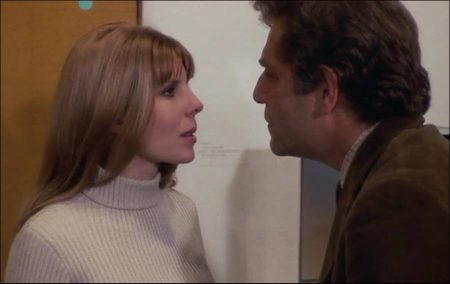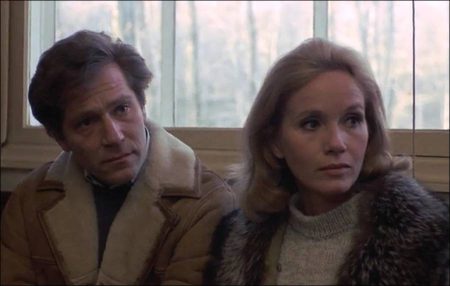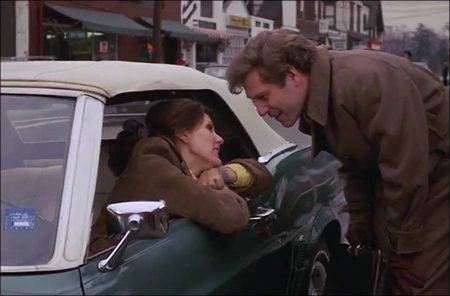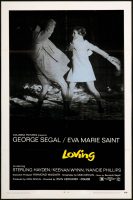Taglines: Trust was something she took for granted.
Loving movie storyline. Commercial graphic artist Brooks Wilson is in an emotional quandary. He used to want to do right by all those around him – including his loving wife Selma and their two young daughters, his agent Edward and subsequently his clients, and even his mistress Grace who would like Brooks to eventually leave Selma for her – but he has basically given up, feeling the need to please is now more an aggravation to his life.
He goes on drinking binges during work meetings which results in him alienating those around him who could help him get ahead in his career. Selma knows that not all is perfect in their life, but she doesn’t know the full extent of the problem beyond the work insecurity issue and thus how best to provide the support he needs. Despite these failings, he is on the verge of landing the biggest account of his career with truck manufacturer Lepridon, an account about which he has mixed feelings.
On the one hand, getting the account would boost his name in the business. On the other hand, in his own words, “who wants to draw trucks for the rest of their life”. His life problems culminate the outcome of a drunken decision at a neighborhood party.
Loving is a 1970 American comedy-drama film released by Columbia Pictures and directed by Irvin Kershner. It is based on the novel Brooks Wilson Ltd. written by pulp magazine illustrator John McDermott under his pen name J.M. Ryan. The movie starred George Segal in the lead role of a philandering illustrator and Eva Marie Saint as his wife. The cast included Sterling Hayden, David Doyle, Keenan Wynn, Roy Scheider and Sherry Lansing. Broadway actress Betsy von Furstenberg had a small uncredited role, only one of two motion pictures she ever appeared in.
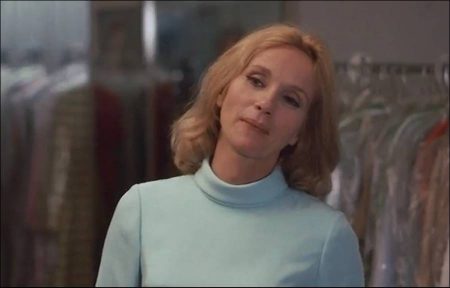
Film Review for Loving
Now consider “Loving.” Here’s a film that was released last March in New York, received a reasonably warm critical reception and then disappeared all summer into some kind of distributorial limbo, turning up finally this week in neighborhood theaters. Somehow it deserved more attention than that. It’s not an earth-shaking film, but it is an amusing and intelligent comedy of manners, and George Segal is fun to watch.
Segal plays a commercial artist who’s on his way up some days, on his way down other days, and usually wrapped in a state of confusion. In many ways he resembles Ginger Coffey, whose luck was considered in a 1964 film by the same director, Irvin Kershner. Ginger was bedeviled by his own lack of organization, as much as anything. Not his organization of material things, but his organization of his emotional life.
The Segal character has a loving wife and kids at home, a loving mistress in the city, a manager who wants him to make lots of money, and a harassed conscience. His basic problem is that he wants to do the right thing by everybody, and can’t. How can you do the right thing by your mistress when, just by having a mistress, you’re doing the wrong thing by your wife? And vice versa, these days.
So Segal sinks into the confusions of suburban morality, substituting the martini lunch for the confessional. He can afford ethical soul-searching better than his wife, Eva Marie Saint, who gets to wrestle with the kids while he’s wrestling with his conscience. That’s part of the problem, too, even if Segal gets everything straightened out morally, his marriage may expire from exhaustion.
Or, as a bartender I once knew once said about a couple he once knew, the screwing they’re getting isn’t worth the screwing they’re getting. Which is also what the movie is about, and where the title comes from, I guess. “Loving” is an ongoing process, as opposed to “love,” which as everybody knows is an eternal and unshakable commodity much valued by poets. But Shelley never changed a diaper, and Keats never commuted from Westchester, and loving in the world of 1970 America is perhaps a process of survival, not affirmation.
Anyway, in a genial and long-suffering way, Segal doggedly tries to mend his life, and it helps that his wife really does love him, after her fashion. The trouble is, long weeks of accomplishment can be undone with a single drunken evening, and Segal nearly undoes his entire life during a neighborhood party.
He wanders into view of a closed-circuit TV camera while seducing a neighbor’s wife, and everybody at the party (including Second City’s Martin Harvey Friedberg) watches in horror on the screen in the den. Nobody, of course, makes a move to turn off the television, and that’s what suburban morality is all about these days, I guess: Honesty.
Loving (1970)
Directed by: Irvin Kershner
Starring: George Segal, Eva Marie Saint, Sterling Hayden, Keenan Wynn, Nancie Phillips, Janis Young, David Doyle, Paul Sparer, Andrew Duncan, Sherry Lansing, Mina Kolb, Diana Douglas
Screenplay by: Don Devlin
Production Design by: Walter Scott Herndon
Cinematography by: Gordon Willis
Film Editing by: Robert Lawrence
Costume Design by: Albert Wolsky
Makeup Department: Joe Cranzano
Music by: Bernardo Segall
MPAA Rating: None.
Distributed by: Columbia Pictures
Release Date: March 4, 1970
Visits: 95
